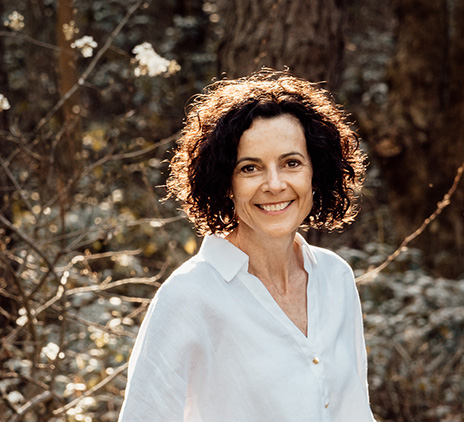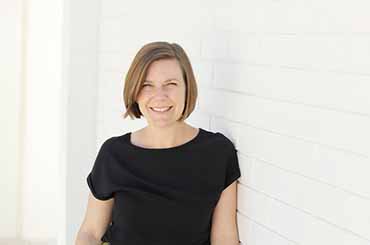- Market services
- Indigenous advisory
-
Compliance audits & reviews
Our audit team undertakes the complete range of audits required of Australian accounting laws to help you to help you meet obligations or fulfil best practice procedures.
-
Audit quality
We are fiercely dedicated to quality, use proven and globally tested audit methodologies, and invest in technology and innovation.
-
Financial reporting advisory
Our financial reporting advisory team helps you understand changes in accounting standards, develop strategies and communicate with your stakeholders.
-
Audit advisory
Grant Thornton’s audit advisory team works alongside our clients, providing a full range of reviews and audits required of your business.

-
Corporate tax & advisory
We provide comprehensive corporate tax and advisory service across the full spectrum of the corporate tax process.
-
Private business tax & advisory
We work with private businesses and their leaders on all their business tax and advisory needs.
-
Tax compliance
We work alongside clients to manage all tax compliance needs and identify potential compliance or tax risk issues.
-
Employment tax
We help clients understand and address their employment tax obligations to ensure compliance and optimal tax positioning for their business and employees.
-
International tax
We understand what it means to manage tax issues across multiple jurisdictions, and create effective strategies to address complex challenges.
-
GST, stamp duty & indirect tax
Our deep technical knowledge and practical experience means we can help you manage and minimise the impact of GST and indirect tax, like stamp duty.
-
Tax law
Our team – which includes tax lawyers – helps you understand and implement regulatory requirements for your business.
-
Innovation Incentives
Our national team has extensive experience navigating all aspects of the government grants and research and development tax incentives.
-
Transfer pricing
Transfer pricing is one of the most challenging tax issues. We help clients with all their transfer pricing requirements.
-
Tax digital consulting
We analyse high-volume and unstructured data from multiple sources from our clients to give them actionable insights for complex business problems.
-
Corporate simplification
We provide corporate simplification and managed wind-down advice to help streamline and further improve your business.
-
Superannuation and SMSF
Increasingly, Australians are seeing the benefits, advantages and flexibility of taking control of their own superannuation and retirement planning.

-
Payroll consulting & Award compliance
Many organisations are grappling with a myriad of employee agreements and obligations, resulting in a wide variety of payments to their people.
-
Cyber resilience
The spectrum of cyber risks and threats is now so significant that simply addressing cybersecurity on its own isn’t enough.
-
Internal audit
We provide independent oversight and review of your organisation's control environments to manage key risks, inform good decision-making and improve performance.
-
Financial crime
Our team helps clients navigate and meet their obligations to mitigate crime as well as develop and implement their risk management strategies.
-
Consumer Data Right
Consumer Data Right (CDR) aims to provide Australians with more control over how their data is used and disclosed.
-
Risk management
We enable our clients to achieve their strategic objectives, fulfil their purpose and live their values supported by effective and appropriate risk management.
-
Controls assurance
In Australia, as with other developed economies, regulatory and market expectations regarding corporate transparency continue to increase.
-
Governance
Through fit for purpose governance we enable our clients to make the appropriate decisions on a timely basis.
-
Regulatory compliance
We enable our clients to navigate and meet their regulatory and compliance obligations.

-
Forensic accounting and dispute advisory
Our team advises at all stages of a litigation dispute, taking an independent view while gathering and reviewing evidence and contributing to expert reports.
-
Investigations
Our licensed forensic investigators with domestic and international experience deliver high quality results in the jurisdictions in which you operate.
-
Asset tracing investigations
Our team of specialist forensic accountants and investigators have extensive experience in tracing assets and the flow of funds.

-
Mergers and acquisitions
Our mergers and acquisitions specialists guide you through the whole process to get the deal done and lay the groundwork for long-term success.
-
Acquisition search & strategy
We help clients identify, finance, perform due diligence and execute acquisitions to maximise the growth opportunities of your business.
-
Selling a business
Our M&A team works with clients to achieve a full or partial sale of their business, to ensure achievement of strategic ambitions and optimal outcomes for stakeholders.
-
Operational deal services
Our operational deal services team helps to ensure the greatest possible outcome and value is gained through post merger integration or post acquisition integration.
-
Transaction advisory
Our transaction advisory services support our clients to make informed investment decisions through robust financial due diligence.
-
Business valuations
We use our expertise and unique and in-depth methodology to undertake business valuations to help clients meet strategic goals.
-
Tax in mergers & acquisition
We provide expert advice for all M&A taxation aspects to ensure you meet all obligations and are optimally positioned.

-
Corporate finance
We provide effective and strategic corporate finance services across all stages of investments and transactions so clients can better manage costs and maximise returns.
-
Debt advisory
We work closely with clients and lenders to provide holistic debt advisory services so you can raise or manage existing debt to meet your strategic goals.
-
Working capital optimisation
Our proven methodology identifies opportunities to improve your processes and optimise working capital, and we work with to implement changes and monitor their effectiveness.
-
Capital markets
Our team has significant experience in capital markets and helps across every phase of the IPO process.
-
Debt and project finance raising
Backed by our experience accessing full range of available funding types, we work with clients to develop and implement capital raising strategies.
-
Private equity
We provide advice in accessing private equity capital.
-
Financial modelling
Our financial modelling advisory team provides strategic, economic, financial and valuation advice for project types and sizes.
-
Payments advisory
We provide merchants-focused payments advice on all aspects of payment processes and technologies.

-
Voluntary administration & DOCA
We help businesses considering or in voluntary administration to achieve best possible outcomes.
-
Corporate insolvency & liquidation
We help clients facing corporate insolvency to undertake the liquidation process to achieve a fair and orderly company wind up.
-
Complex and international insolvency
As corporate finance specialists, Grant Thornton can help you with raising equity, listings, corporate structuring and compliance.
-
Safe Harbour advisory
Our Safe Harbour Advisory helps directors address requirements for Safe Harbour protection and business turnaround.
-
Bankruptcy and personal insolvency
We help clients make informed choices around bankruptcy and personal insolvency to ensure the best personal and stakeholder outcome.
-
Creditor advisory services
Our credit advisory services team works provides clients with credit management assistance and credit advice to recapture otherwise lost value.
-
Small business restructuring process
We provide expert advice and guidance for businesses that may need to enter or are currently in small business restructuring process.
-
Asset tracing investigations
Our team of specialist forensic accountants and investigators have extensive experience in tracing assets and the flow of funds.

-
Independent business reviews
Does your company need a health check? Grant Thornton’s expert team can help you get to the heart of your issues to drive sustainable growth.
-
Commercial performance
We help clients improve commercial performance, profitability and address challenges after internal or external triggers require a major business model shift.
-
Safe Harbour advisory
Our Safe Harbour advisory helps directors address requirements for Safe Harbour protection and business turnaround.
-
Corporate simplification
We provide corporate simplification and managed wind-down advice to help streamline and further improve your business.
-
Director advisory services
We provide strategic director advisory services in times of business distress to help directors navigate issues and protect their company and themselves from liability.
-
Debt advisory
We work closely with clients and lenders to provide holistic debt advisory services so you can raise or manage existing debt to meet your strategic goals.

-
Business planning & strategy
Our clients can access business planning and strategy advice through our value add business strategy sessions.
-
Private business company secretarial services
We provide company secretarial services and expert advice for private businesses on all company secretarial matters.
-
Outsourced accounting services
We act as a third-party partner to international businesses looking to invest in Australia on your day-to-day finance and accounting needs.
-
Superannuation and SMSF
We provide SMSF advisory services across all aspects of superannuation and associated tax laws to help you protect and grow your wealth.
-
Management reporting
We help you build comprehensive management reporting so that you have key insights as your business grows and changes.
-
Financial reporting
We help with all financial reporting needs, including set up, scaling up, spotting issues and improving efficiency.
-
Forecasting & budgeting
We help you build and maintain a business forecasting and budgeting model for ongoing insights about your business.
-
ATO audit support
Our team of experts provide ATO audit support across the whole process to ensure ATO requirements are met.
-
Family business consulting
Our family business consulting team works with family businesses on running their businesses for continued future success.
-
Private business taxation and structuring
We help private business leaders efficiently structure their organisation for optimal operation and tax compliance.
-
Outsourced CFO services
Our outsourced CFO services provide a full suite of CFO, tax and finance services and advice to help clients manage risk, optimise operations and grow.
-
ESG & sustainability reporting
There is a growing demand for organisations to provide transparency on their commitment to sustainability and disclosure of the nonfinancial impacts of their business activities. Commonly, the responsibility for sustainability and ESG reporting is landing with CFOs and finance teams, requiring a reassessment of a range of reporting processes and controls.
-
ESG & sustainability advisory
With the ESG and sustainability landscape continuing to evolve, we are focussed on helping your business to understand what ESG and sustainability represents and the opportunities and challenges it can provide.
-
ESG, sustainability and climate reporting assurance
As the demand for organisations to prepare information in relation to ESG & sustainability continues to increase, through changes in regulatory requirements or stakeholder expectations, there is a growing need for assurance over the information prepared.

-
Management consulting
Our management consulting services team helps you to plan and implement the right strategy to deliver sustainable growth.
-
Financial consulting
We provide financial consulting services to keep your business running so you focus on your clients and reaching strategic goals.

-
China practice
The investment opportunities between Australia and China are well established yet, in recent years, have also diversified.
-
Japan practice
The trading partnership between Japan and Australia is long-standing and increasingly important to both countries’ economies.
-
India practice
It’s an exciting time for Indian and Australian businesses looking to each jurisdiction as part of their growth ambitions.
-
Singapore practice
Our Singapore Practice works alongside Singaporean companies to achieve growth through investment and market expansion into Australia.

-
 Insight Australian wine export strategies post-China tariff removalFollowing the recent removal of tariffs on Australian wine by China, the industry is keen to rebuild relations and explore the right export markets. This presents Australian wine producers with a chance to reassess their position in the global market.
Insight Australian wine export strategies post-China tariff removalFollowing the recent removal of tariffs on Australian wine by China, the industry is keen to rebuild relations and explore the right export markets. This presents Australian wine producers with a chance to reassess their position in the global market. -
 Insight Identify your opportunities in the complex landscape of fuel tax creditsThe landscape of fuel tax credits (FTC) is constantly evolving due to ongoing economic and technological developments. This dynamic environment presents both challenges and opportunities for businesses with significant fuel consumption.
Insight Identify your opportunities in the complex landscape of fuel tax creditsThe landscape of fuel tax credits (FTC) is constantly evolving due to ongoing economic and technological developments. This dynamic environment presents both challenges and opportunities for businesses with significant fuel consumption. -
 Client Alert March 2024 Update: NSW Grants for Net Zero Manufacturing and Physical SciencesSome major NSW grant programs have been announced, supporting projects in clean technology innovation, low carbon product manufacturing, renewable manufacturing and physical sciences.
Client Alert March 2024 Update: NSW Grants for Net Zero Manufacturing and Physical SciencesSome major NSW grant programs have been announced, supporting projects in clean technology innovation, low carbon product manufacturing, renewable manufacturing and physical sciences. -
 Insight Navigating a complex Agribusiness, Food and Beverage deals landscape in 2024Despite a 14% global decline in Agribusiness, Food, and Beverage M&A deals, 2024 shows promise with expected global interest rate stabilisation. Given the sector's role in global sustainability, businesses can tap into opportunities in food manufacturing and waste minimisation.
Insight Navigating a complex Agribusiness, Food and Beverage deals landscape in 2024Despite a 14% global decline in Agribusiness, Food, and Beverage M&A deals, 2024 shows promise with expected global interest rate stabilisation. Given the sector's role in global sustainability, businesses can tap into opportunities in food manufacturing and waste minimisation.
-
Renewable Energy
Transformation through energy transition

-
Business Planning and Strategy
Having an honest, broad-reaching and thought-provoking discussion with a skilled, independent advisor can be the catalyst for clarity – a direction to take your business forward and an understanding of what is key to success.

-
Flexibility & benefits
The compelling client experience we’re passionate about creating at Grant Thornton can only be achieved through our people. We’ll encourage you to influence how, when and where you work, and take control of your time.
-
Your career development
At Grant Thornton, we strive to create a culture of continuous learning and growth. Throughout every stage of your career, you’ll to be encouraged and supported to seize opportunities and reach your full potential.
-
Diversity & inclusion
To be able to reach your remarkable, we understand that you need to feel connected and respected as your authentic self – so we listen and strive for deeper understanding of what belonging means.
-
In the community
We’re passionate about making a difference in our communities. Through our sustainability and community engagement initiatives, we aim to contribute to society by creating lasting benefits that empower others to thrive.
-
Graduate opportunities
As a new graduate, we aim to provide you more than just your ‘traditional’ graduate program; instead we kick start your career as an Associate and support you to turn theory into practice.
-
Vacation program
Our vacation experience program will give you the opportunity to begin your career well before you finish your degree.
-
The application process
Applying is simple! Find out more about each stage of the recruitment process here.
-
FAQs
Got questions about applying? Explore frequently asked questions about our early careers programs.
-
Our services lines
Learn about our services at Grant Thornton
-
Current opportunities
Current opportunities
-
Remarkable people
Our team members share their remarkable career journeys and experiences of working at Grant Thornton.
-
Working at Grant Thornton
Explore our culture, benefits and ways we support you in your career.
-
Current opportunities
Positions available.
-
Contact us
Get in touch

Agile Mind’s mission is to ensure everyone has the knowledge and tools to experience the benefits of mindfulness and meditation in their everyday life. With studies showing a correlation between mindfulness and more positive mental health, Amanda is on a mission to ensure the corporate world is happy and energised. So, as we near the holiday season, what are the best tips to unwind and incorporate mindfulness into our lives?
In this episode, Amanda talks about her career journey, how she became interested in mindfulness, and the biggest learnings she teaches corporate leaders in her practice.
Available on Apple Podcasts, Spotify or within your browser.
For more information on Agile Mind, click here.
Rebecca Archer
Welcome to The Remarkables – Grant Thornton’s podcast that seeks to uncover stories about remarkable people doing incredible things for their community, bettering the world for future generations and inspiring others to do the same.
Please note that this episode will cover mental health, which can be distressing. If you need support, please go to beyondblue.org or, Lifeline on 13 11 14 for 24-hour free counselling in Australia.
I’m Rebecca Archer, and today I’m joined by Amanda Goodfellow – a corporate meditation teacher and owner at Agile Mind and a Grant Thornton alumnus. As we enter the holiday period, it’s important to reflect on the busy year that’s just been. Amanda has built her business on helping corporate leaders manage their stress through mindfulness, teaching us to slow down and feel in the present moment.
Welcome Amanda – thank you for joining us on the podcast today!
Amanda Goodfellow
Thank you so much for having me. I'm really excited to be here.
Rebecca Archer
Tell us about your career journey.
Amanda Goodfellow
Yeah, well, it didn't start off as it ended, as most careers don't. I firstly wanted to be a musician. When I left school, I went to the Conservatorium of Music here in Adelaide; I played the cello, and I wasn't there very long. I was only there long enough to realise that I probably didn't have what it takes to be a professional musician and then changed to a business degree, and that's been a really good grounding, actually, for the diverse roles that I've had since that time. I've ended up working in associations. I was managing the Family Business Association here in South Australia for a while, which then led to the career in professional services.
So I started working in marketing and business development at another mid-tier firm and then was lucky enough to get the role at Grant Thornton in, I think it was around 2017. So that's how that trajectory – kind of the winding road – into professional services and then, of course, from professional services to meditation teacher – so another u-turn.
Rebecca Archer
And how did that come about? I'm really interested in how you end up teaching mindfulness in the corporate world.
Amanda Goodfellow
Yeah, it is an interesting story. So, they were always quite separate. I had been interested in meditation and mindfulness just personally. It was a tool that I used because I've always struggled with mental illness pretty much most of my adult life, and meditation and mindfulness was the tool that I used to really help me show up to work.
I would do my meditation in the morning and then go to work and be normal in air quotes, get the job done, and then go home and repeat, and they were always very separate. It was actually when I started working in professional services and I was exposed to a lot of other industries, you know, we worked with aged care and biotech and other financial services, and I thought, wow, I'm not the only one struggling here. I think there are a lot of people who are really stressed and overwhelmed, and I wonder if there's an opportunity to bring mindfulness into the workplace.
So, I went off and did some training in teaching – meditation mindfulness teaching – still really not with a clear intention of running my own business; I was just interested in how people did that.
And then quite, I suppose, organically, people started to find out and they said, oh, can you come and run some sessions for us at lunchtime? So, it was sort of just really experimental to start with, and then over time, I think I just saw the need become really obvious and I launched Agile Mind in 2019.
Rebecca Archer
Can you give us some insight into what mindfulness actually means and when your interest in this really piqued?
Amanda Goodfellow
It's such a great question because the word mindfulness just gets thrown around everywhere. It's like mindful parenting, mindful leadership, mindful this, mindful that, and I think there can be sort of a misconception about what it actually means, and it's really simple.
The word mindfulness means bringing our attention to what's happening in the moment with curiosity, with a willingness for it to be just as it is – that's all it is. And it's just so simple. But it's also really difficult because humans are always really placing judgments on our experience – things are good, bad, we want it to be other than it is.
And so, we get sort of stuck in our own stories and tangled up in our own heads, and the practice of mindfulness is really just creating a little bit of space so that we can see things more clearly, that we can regulate our nervous system, that we can come back to this place of presence and awareness, where our body is not releasing stress hormones; we're just in a much better place to be present with other people, to collaborate, to come up with good ideas, to innovate.
So, its power is immense, but the actual practice is really simple, and I think that's why I like it so much.
You asked when my interest in it really piqued, and actually, I think it was being at work and sitting in a boardroom surrounded by people who I could see clearly were struggling or clearly were using behaviors that weren't helpful for them to thrive, but they didn't know any other way; there were no other tools. We're not taught this at school, we're not taught this at Uni. And I felt really strongly that this was something that all humans need to learn, and that's where it became really important for me to start doing the business.
Rebecca Archer
You detailed your personal experience in a Ted Talk. I wonder if you would be willing to share what that experience was with our listeners.
Amanda Goodfellow
Yeah, the Ted Talk last year was so much fun; I loved it; I was so grateful to have that opportunity, and the theme of the talk was talking about how, as human beings, we spend a lot of time distracting ourselves and we have all these really sophisticated ways of not being present with ourselves, like with scrolling on the phone, having a couple of drinks every night to unwind, or perhaps we have a strange relationship with food – and I couldn't have done that talk even five years ago.
I think I was still really ashamed of my experience. I had an eating disorder when I was younger, for about ten years, and a lot of that was around not wanting to feel my feelings, not wanting to be present with pain and uncertainty. And so, I'm really interested in the methods we use as humans to avoid our feelings. And of course I took that to an extreme by developing an eating disorder, but I see it in everybody to some extent.
So, the talk was about sharing my personal experience, and then how the practice of mindfulness, in particular somatic mindfulness, so that's all about feeling our feelings in our body has completely transformed my life.
Rebecca Archer
And you've said that learning to feel feelings is actually a teachable skill. How has that translated into what you teach in the corporate setting?
Amanda Goodfellow
It really is the basis for everything that I teach in a corporate setting, particularly around the message or the issue of engagement. I see a lot of teams showing up to work, but they're disconnected and they're not collaborating, and they're not engaged, and mindfulness is really at the core of this.
So, when people feel safe and present, it's only from that place that they're able to be connected, collaborative and engaged, and I use a framework called ‘adrift’ and ‘anchored’ – and ‘adrift’, we kind of all know what that means, that feeling of being at the mercy of the elements, lost, meandering – and ‘anchored’, of course, being present, supported and held. And adrift can be broken down into behaviors like avoid, distract, repress, ignore, fawn and tantrum, and I think we can all relate to these showing up for us in all sorts of different ways – but particularly at work.
We're often working with people who we probably wouldn't choose to hang around with most of our times, but we all have to tune in when we get to work. We're all kind of forced together into this environment where we need to be present, and the practice of mindfulness is at the core of this.
So, I like to imagine teams, the power of a team that can be present and take ownership of their own emotional weather patterns is hugely powerful.
Rebecca Archer
I'm curious about the types of businesses that you work with, and why exactly they come to you in the first place.
Amanda Goodfellow
Yeah, I've been so lucky to work with some of the biggest brands in Australia and they're all really different. So, it's hard for me to say I specialise in one industry. I particularly like working in professional services because I understand it, and I understand the unique nature of their business, but I like working with any organisation where there are people who are stressed and overwhelmed, and I think if we put the lens over any sector right now in Australia that includes all of them; we're trying to manage so much change; we're working with deep uncertainty, complexity; the goalposts are continuously moving, so we really need to give people skills to help manage their own wellbeing, and I see workplaces offering things after the case, you know, the EAP services and support services, which is wonderful, but I'm not seeing a lot in this preventative space. And that's where I think mindfulness can really come into its own.
Rebecca Archer
Amanda, what's the biggest learning that you teach corporate leaders around mindfulness?
Amanda Goodfellow
The biggest learning is self-awareness and helping people to recognise their own red flags. So those adrift behaviors that I mentioned before can really go unnoticed, and sometimes even celebrated. So, I'm thinking about those fawn behaviors, those people pleasing behaviors, and speaking from personal experience as a lifelong people pleaser, in a workplace, they can be really celebrated and makes them really sticky and hard to move.
But underneath that is perhaps someone who's actually really traumatised and someone that's really struggling or that person that's really aggressive at work, and so, everyone kind of just does what they say because they're afraid they're going to start yelling and behaving badly.
I see all of these behaviors in a workplace that are sort of normalized, and if we look under the hood a little bit, being able to bring some awareness to these behaviors in a work team is the first step. They take a little while to shift sometimes, but if we're not aware of them and they're just playing out randomly and reactively, it can be really damaging.
So, the most important is bringing self-awareness and then mindfulness as a tool to regulate people so that they feel safe enough to implement change.
Rebecca Archer
And of course, at the moment we're coming into the holiday season where there might be some quite tight final deadlines and last-minute things to get done before the break. Do you have any tips for the corporate world as we enter this particular period?
Amanda Goodfellow
Yeah, I mean, every year it's the same, isn't it? Things just start to go really crazy from now until this race until the end of the year, and I think one of the things I like to say is that Mindfulness doesn't make that go away. Christmas is going to be crazy and busy and there's going to be a lot of inputs coming in at all of us no matter what, no matter how much we meditate and how much mindfulness we practice, but what it can do is to help us get prevents us getting stuck in the washing machine is what I like to call that feeling of just being sort of tossed around by the elements it can help us feel more grounded, that we have a sense of agency over what's going on.
And when we have that sense of agency, we just make better choices. We might find ourselves perhaps saying no to a couple of those Christmas parties that we automatically would just agree to go to. We start to bring more awareness to how we're feeling emotionally and physically. So, we start getting more in tune with our physical cues.
Like when we're so exhausted that we know that a better decision is to stay home and rest, but yeah, I guess the main message is that mindfulness isn't a silver bullet; it doesn't make everything rainbows and unicorns, but it just brings the power back to us and helps us to make much more informed, kinder, compassionate decisions and set kind and compassionate boundaries.
Rebecca Archer
I wonder how someone can tangibly incorporate mindfulness into their everyday life in simple achievable ways. You might have someone who is quite tightly wound, and they think, that's just not my personality, I couldn't possibly achieve that, but I'm sure that there are ways that they can take small steps to get there.
Amanda Goodfellow
Absolutely, and I often talk about my entry point into meditation was pure resistance. I mean, it just wasn't something I was interested in. I thought it was for hippies; I thought it was for people who were already relaxed, earthy type people. It wasn't for me. I was a Type A, perfectionist doer; it just wasn't in my realm at all, and so, I can really relate to those people who say, oh yeah, meditation good for you, but it's not for me because there's a lot of misconceptions about it.
It's not about sitting quietly in a dark room every morning. I mean, it can be if you want it to be, but the practice of mindfulness is an active practice. It's what we're doing when we're writing an email, when we're driving the car, when we're waiting for a coffee. There are all those tiny moments where we can come back to the present moment, and we do this through connecting to our senses, and we can do that anytime, anywhere. It's free, it's accessible, it's just remembering to do it.
And in fact, the word mindfulness in its original sense translation, is remembering, and it's remembering to come back to this place of balance. So, I particularly like working with skeptics and those people because I see myself in them. They're really wound up tight – I haven't got time for this.
So, mindfulness is about how often can you come back to this point throughout the day? It might take two seconds – so little and often is my advice.
Rebecca Archer
And what are some examples of how to make that connection? Is it something where you might, in terms of using the senses, look around and start to notice things that are around you or really tune into the sort of smells that are happening? If you're standing, waiting for a coffee, for example.
Amanda Goodfellow
Yes, all of those things, and everyone will sort of resonate with a sense more strongly. So, some people can really feel the connection to their feet, with the ground, or they can feel sensation in the body really easily.
For other people, that's a little bit more difficult, so they might need to use movement. So going for a run can be a mindfulness exercise. Taking a smell of your coffee before you gulp it down, or actually going outside to eat your lunch rather than scrolling on your phone, sending an email and eating a sandwich at the same time, which we've all been there.
So, using any of your senses to connect, when you're connecting to your senses, you're in the present moment, even if it's just for a second.
Rebecca Archer
And of course, I would imagine that there's a pretty strong correlation between mental health and mindfulness. Do people who practice mindfulness have lower reported mental health challenges?
Amanda Goodfellow
There's a whole ton of research now to support this and the research still is very much in its infancy. So, there is a lot of work still to be done, but the early evidence is really compelling.
Mindfulness really only became back into the western vernacular in the 70s through the mindfulness-based stress reduction. So that's sort of the gold standard, this eight-week mindfulness program which shows physical changes in someone's brain.
If you practice mindfulness for eight weeks, the amygdala actually shrinks. So, these are physical changes in our brain when we practice meditation mindfulness over eight weeks; it's really not a very long time and it's a ten minute meditation. Research is also saying now that we only need ten minutes three times a week to make these physical changes in our brain. It's really not very much.
Rebecca Archer
So, the practice of mindfulness and being present and in the moment seems to me potentially at odds with the traditional fast-paced environment of the corporate world, where there are deadlines and productivity is seen as a gold standard for people.
So, I'm wondering how you reconcile the teaching of mindfulness in a space where perhaps it hasn't necessarily fit previously.
Amanda Goodfellow
Absolutely, and that's one of the biggest barriers I face, is going fast, multitasking, doing all the things on my list are key to my success; this is how I succeed, is by doing all the things, and I'm not saying that that has to stop. I'm saying that mindfulness will help you achieve your list more successfully and slowing down momentarily will improve your performance exponentially.
So, it can feel a bit counterintuitive that you're asking me to stop and take three breaths, but once we start to build in the habit of I know when I take three breaths before I start this email, I don't have to rewrite it three times; we make less mistakes and our performance is greatly improved.
It's simply just learning how to build that habit into our daily work systems. And the work that I'm doing with corporates at the moment is how do we build mindfulness into our practices, into our systems, into how we run a meeting, because it's then not something that you have to remember to tack on yourself; it's something that's embedded into systems and culture and that's my dream moving forward, that this is how organisations work.
Rebecca Archer
And how have you found businesses? Are they receptive to that kind of approach?
Amanda Goodfellow
They have been way more receptive than I thought, to be honest – I think the time is right. I think we've tried a whole lot of things that haven't worked, and people are ready to do something different, and the big change I feel is when people actually experience what it feels like to come back into this place of balance, of presence and they go, wow, I haven't been there for a while and that actually feels really good.
It really is just about knowing how to get yourself back there because it will be a little bit different for everybody, and once you've found a technique and a tool that works for you, that's a superpower you have for life. I've been really pleased at how perhaps some of the sectors I thought may have been a little reluctant have taken this on beautifully and have reported some really significant changes in the way they've done things. So, it's been amazing.
Rebecca Archer
Given your experience and expertise in this area, I wonder what you think about what more can be done at not only a personal level or a corporate level, but also a government level to prioritise mental health and these kinds of mindfulness practices in the workplace?
Amanda Goodfellow
There is so much that can be done, and it is pleasing to see that there is change, but it's happening way too slowly. I have been fortunate enough to go and run some Mindfulness sessions with eating disorder patients here in Adelaide at the Women's and Children's and that has felt really groundbreaking. It's a small grant; it's a six-month program that we're running, but it's a start.
It's frustrating to see that a lot of our solutions to mental health are cognitive based – so cognitive based therapies and certainly not to discourage that. It has been helpful for me to some extent, but it's missing a very big part of the picture, which is our Somatic responses. And so, I would be interested to see more Somatic-based therapies being offered and also more preventative strategies. I feel like we just want to stick band aids on people once they've broken and there is a lot that we can be doing in this preventative space and mindfulness plays a huge part in that.
Rebecca Archer
And just finally, Amanda, is there anything exciting that you've got coming up in this space for your business?
Amanda Goodfellow
So many exciting things. It's a really good time to be in this space. I have been doing a lot more keynote speaking. It's something that I'm really interested in doing more of. I'll be speaking at the Australian HR Conference here in Adelaide next week and hopefully more keynotes on the way for next year.
In the meantime, I'm running eight-week programs here for corporate businesses and they can be run face to face, also online, so that's really exciting to be able to work with some businesses all around Australia. Otherwise, it's really an evolving space. I also have quite an interest in the aged care sector and how we can help support families who are putting people into residential care.
I know that's really difficult for families, but it's also difficult for staff, so helping people navigate that space has become a new project for me recently. So, yeah, lots going on.
Rebecca Archer
Amanda, thank you so much for your time today. It has been absolutely fascinating to talk to you. How can we continue to follow you beyond the podcast episode and get involved, potentially?
Amanda Goodfellow
Thank you so much, Rebecca. Yeah, so my website is agilemind.com.au and I'm on all the socials @agilemindsa or I mostly post through LinkedIn, so you can follow me there.
Rebecca Archer
If you liked this podcast and would like to hear more remarkable stories, you can find, like and subscribe to The Remarkables podcast by Grant Thornton Australia on Apple Podcasts or Spotify. Leave us a review or ideas on who you’d like to hear from next. I’m Rebecca Archer – thank you for listening.
We wanted to uncover and explore remarkable stories about incredible people working to better their local (and sometimes global!) communities and inspire younger generations.
Our new podcast – The Remarkables – does just that.
































